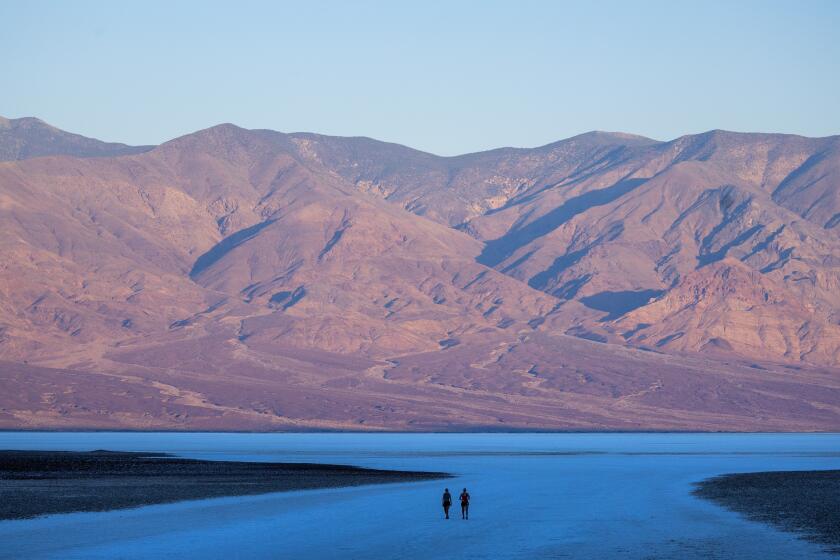FDA Warns That Kava Use May Cause Liver Damage
The Food and Drug Administration warned consumers and doctors Monday that kava, a popular dietary supplement, carries a “potential risk” of causing severe liver damage.
The advisory urged kava consumers and their doctors to be on the lookout for signs of liver injury. It came three months after the FDA asked doctors to review their cases for links between kava and liver problems.
FDA officials said the decision was made to alert consumers about the rare pattern while they continue to search for a “biological relationship” between cases of liver toxicity and use of kava, which is marketed to relieve sleeplessness, stress, anxiety and menopausal symptoms.
“What we are saying is: ‘OK, consumers, if you are taking kava you should be aware of this pattern,’ ” said FDA spokeswoman Ruth Welch. “We’re saying there is some reason for concern, but we do not have a biological explanation for this.”
The herbal supplement has been connected to more than 25 cases of liver-related injuries in other countries, FDA officials said. The FDA noted the product has been the target of warnings and even recalls by foreign regulators.
Investigators know of at least one U.S. case of a previously healthy young woman who required a liver transplant after taking kava. The agency is still attempting to establish a link between use of the herb and the woman’s liver failure.
Several other reports of liver problems in individuals who had consumed kava have been reported since the FDA began actively seeking information about side effects from doctors and consumers in December. The plant indigenous to South Pacific islands is marketed as a drink or a pill.
Kava ranks ninth in herbal supplements sold in the U.S., with about $68 million in annual sales, according to industry groups. The most popular anti-stress herb, it is packaged under a variety of names, including ava, awa, intoxicating pepper and kew.
The FDA urged consumers to watch for signs of liver trouble such as jaundice and brown urine. It advised them to consult a physician if they experience less specific symptoms such as nausea, weakness and unusual tiredness.
“Given these reports, persons who have liver disease or liver problems, or persons who are taking drug products that can affect the liver, should consult a physician before using kava-containing supplements,” the FDA said.
The latest warning about a dietary supplement comes after a string of enforcement efforts by the FDA on the loosely regulated, $15-billion-a-year supplement industry. A 1994 law made the industry largely responsible for guaranteeing the accuracy and safety of its products before bringing them to market, although the FDA still has post-marketing responsibilities for safety and product information.
Last month, popular dietary supplements promoted for prostate health by Brea-based BotanicLab Inc. were recalled after the California Department of Health and Human Services found the over-the-counter pills PC SPES and SPES contained prescription medication.
Questions about potential risks associated with kava have concerned the dietary supplement industry, which has backed FDA efforts to investigate it.
“I understand [the FDA’s] concern and the decision to send something out to the consuming public,” said Loren Israelson, executive director of the Utah Natural Products Alliance.
Still, he said, “we’d hoped to work with them a bit more on how best to communicate what we do know and what we don’t know.”
Israelson said that while the number of cases is “very small but very serious,” he noted that causes of the problems aside from kava have not been ruled out.
Phil Harvey, chief scientist for the National Nutritional Foods Assn., which represents 3,000 retailers and 1,000 manufacturers, said the industry wants to get to the bottom of any potential risks.
“Kava has been very popular and used for centuries,” Harvey said. “And just like any food, certain people may be sensitive to a product. Nothing is 100% safe for all people.”
The FDA said Monday it will continue to investigate adverse effects believed to be related to kava and alert consumers to the findings. Officials said they will take additional action “if warranted.”




